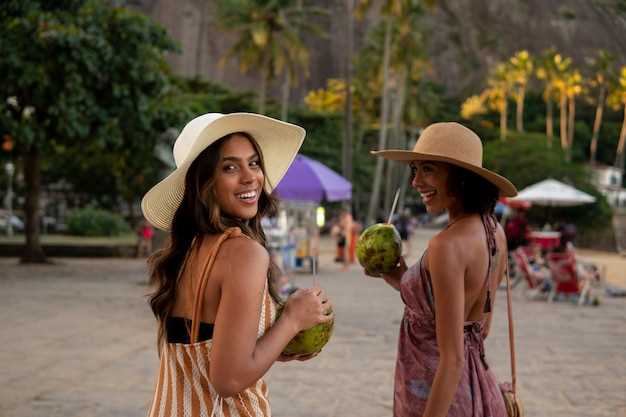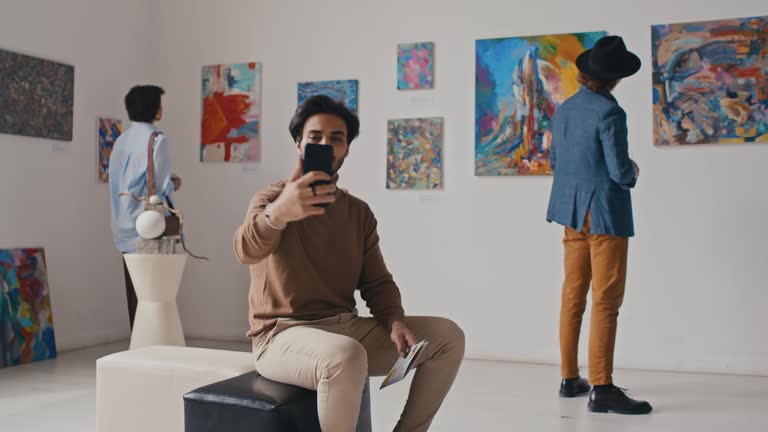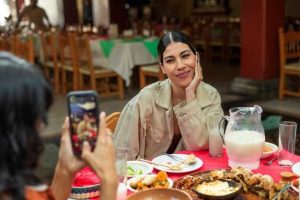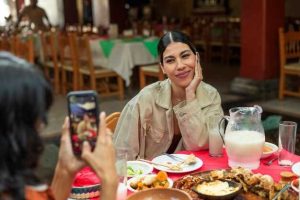In the vibrant landscape of South America, a city pulses with life, color, and rhythm. Bursting with traditions and deep-rooted heritage, this destination offers a wealth of occasions that showcase its unique character. Visitors are drawn to its lively streets and festive atmosphere, where every corner reveals a celebration of artistry, music, and culinary delights.
From spirited parades to immersive performances, the locale invites everyone to join in on its lively tapestry. The fusion of influences from indigenous cultures and global trends creates a dynamic setting that captivates the senses. Each gathering reflects the essence of the community and provides a glimpse into its cherished customs.
Engaging in these happenings not only enriches the journey but also fosters a deeper understanding of the local way of life. Travelers can partake in an array of spectacles that highlight the locale’s artistic prowess and collective passion. Whether through captivating drum beats, dazzling costumes, or mouth-watering delights, the destination promises moments that linger long after the sun sets.
Unmissable Festivals in Rio de Janeiro
In the vibrant city known for its lively spirit and rich traditions, numerous festivities captivate both locals and visitors alike. These celebrations reflect the unique blend of history, art, and community that characterizes the area, making them a must-see for anyone seeking to immerse themselves in the local way of life.
-
Carnival

The most famous celebration, Carnival, is a spectacular showcase of samba music, dazzling costumes, and stunning parades. Held annually before Lent, it draws millions from around the globe, who come to witness and participate in its exuberance.
-
Festa de Iemanjá

Medium full shot of young handsome Middle Eastern man in smart casual clothes sitting in art gallery during modern art exhibition, using smartphone, then taking selfie in front of paintings This religious homage to the Afro-Brazilian goddess of the sea takes place on February 2nd. Participants offer flowers, gifts, and prayers, while colorful processions and traditional music fill the shores.
-
Rock in Rio
An iconic music festival, Rock in Rio spans several days and features international and Brazilian artists across various genres. It offers not just performances but also a vibrant atmosphere filled with art and culinary delights.
-
Reveillon
This New Year’s Eve celebration at Copacabana beach is truly magical. Thousands dress in white and gather for fireworks, live music, and a spirit of hope and renewal as they greet the new year.
-
Festival do Oriente
A celebration of Asian culture, this festival introduces visitors to a wide range of culinary, artistic, and cultural exhibitions. It features traditional performances, workshops, and authentic food stalls.
Each of these occasions offers a chance to engage with the local heritage and connect with the community, making for unforgettable interactions and memories.
Experience the Vibrancy of Carnival
Each year, the city comes alive with an electric atmosphere, drawing in people from around the globe to celebrate in a whirlwind of colors, music, and exuberance. This is a time when traditions merge with rhythm, and the spirit of the community shines brightly. Attending this festival is akin to stepping into a vibrant tapestry woven with cultural threads from various parts of the world.
As the festivities unfold, you will encounter a feast for the senses, including:
- Colorful parades featuring elaborate costumes
- Rhythmic samba music that fills the air
- Artistic expressions in dance that showcase local talent
- Culinary delights that tantalize your taste buds
Getting involved in the festivities is highly recommended, whether through:
- Joining a samba school for an authentic experience
- Participating in street parties known as “blocos”
- Exploring the lively atmosphere in different neighborhoods
Be ready for an everlasting memory as you immerse yourself in this vibrant spectacle, where every moment pulses with joy and unity, captivating the hearts of everyone present.
Dance, Music, and Parades
When the vibrant rhythms fill the streets and the air is charged with energy, a captivating celebration unfolds. This lively combination of movement and sound brings people together, creating an atmosphere that is both exhilarating and heartwarming. In this setting, cultural expressions come alive, showcasing the rich heritage and diverse influences that shape the local identity.
Danceserves as a powerful medium for storytelling, allowing individuals to convey emotions and narratives through their movements. From the graceful steps of samba to the energetic beats of other traditional styles, each performance offers a glimpse into the soul of the community. Enthusiastic dancers often invite spectators to join in, making the celebration an inclusive affair that transcends barriers.
Musicplays a central role, resonating from every corner as talented musicians take to the streets. The lively tunes keep the spirit high and invite spontaneous moments of joy and connection. Whether it’s a spontaneous jam session or a carefully choreographed performance, the melodies capture the essence of the moment and leave a lasting impression on all who hear them.
Not to be missed are theparades, which culminate the festivities in spectacular fashion. Featuring elaborate floats adorned with dazzling colors and intricate designs, these processions are a feast for the eyes. Participants, dressed in extravagant costumes, dance and celebrate along the route, creating a visual and auditory delight that mesmerizes audiences and ignites a sense of community pride.
In this dynamic environment, dance, music, and parades come together to create a tapestry of vibrant expression that embodies the heart and spirit of the locale. Each moment spent amidst these celebrations offers a unique insight into the traditions and values that continue to thrive, making it an enriching journey for all involved.
Cultural Significance and Traditions
The essence of a city often lies in its rich heritage and the vibrant customs that are passed down through generations. In this locale, a unique amalgamation of influences from indigenous populations, African roots, and European traditions creates a tapestry of practices that define the local identity. This dynamic interplay not only informs artistic expressions but also shapes community bonds and social gatherings.
One of the most striking aspects of local customs is their connection to the rhythm of life. Celebrations, often marked by music and dance, serve as a conduit for communal expression and storytelling. Through these activities, traditions are preserved and adapted, reflecting both historical narratives and contemporary values.Festivals, for example, act as vibrant calendars that bring together people from various backgrounds, inviting participation and fostering unity.
Additionally, culinary traditions offer another layer of significance. Local dishes, often characterized by their flavors and ingredients, tell the story of a place that embraces diversity yet remains distinctly unique. Street fairs and open markets become stages for gastronomic delights, where the blending of influences can be savored, enhancing one’s understanding of the community’s identity.Foodplays a pivotal role in family gatherings and social occasions, deepening connections and reinforcing the notion of belonging.
In essence, the traditions and significance found within this bustling metropolis reflect a complex narrative shaped by its history, its people, and their collective aspirations. As one delves into these rich customs, a deeper appreciation of the spirit of the place emerges, illuminating the heart of its vibrant culture.
Connections Through Art and Culture
Art and culture serve as vital pathways for forging relationships among individuals and communities. Through shared expressions, emotions are conveyed, and understanding is deepened. These connections transcend language and background, fostering unity among diverse groups.
In the dynamic landscape of Brazil,creativity thrives through various forms of artistic expression, including music, dance, theater, and visual arts. Each medium acts as a bridge, inviting individuals to engage with one another, while celebrating the rich heritage and contemporary innovations that shape the social fabric of the nation.
Festivals and performanceshighlight the vibrancy of local traditions, allowing participants to immerse themselves in a world where storytelling and creativity coalesce. This not only enriches one’s appreciation of the arts but also nurtures relationships that may extend beyond the realm of creativity, influencing everyday life and fostering a sense of belonging.
Rio Art Biennale
The Rio Art Biennale serves as a vibrant platform where creativity and innovation collide, showcasing the incredible talents of artists from diverse backgrounds. This dynamic gathering fosters dialogue and exploration, inviting visitors to immerse themselves in a rich tapestry of artistic expressions. The event brings together a multitude of mediums, offering a glimpse into contemporary thought and culture through the lens of visual art.
| Dates | Location | Highlights |
|---|---|---|
| Every two years (check local listings for specific dates) | Centro, Rio de Janeiro | Installations, Workshops, Artist Talks |
| August – September | Various Galleries | International Participation, Emerging Artists |
This exhibition attracts numerous art enthusiasts and collectors alike, creating a bustling environment filled with inspiration and creativity. From thought-provoking installations to interactive workshops, attendees are given the chance to engage directly with the artists, deepening their appreciation for the works presented. As the event approaches, anticipation builds, painting a picture of the vibrant artistic landscape that awaits all who attend.
Local Galleries and Exhibitions
Exploring the vibrant art scene in a bustling metropolitan area reveals a multitude of opportunities to appreciate creativity and innovation. Numerous spaces showcase diverse artistic expressions, offering visitors a glimpse into the local culture and talent. Whether it’s contemporary pieces, traditional crafts, or thought-provoking installations, these venues are essential for those keen on art and culture.
Here are some notable galleries to check out:
- Centro Cultural Banco do Brasil– A prominent space known for its eclectic exhibitions and cultural programming, showcasing both national and international artists.
- Instituto Moreira Salles– This gallery focuses on photography and visual arts, often hosting engaging exhibitions that challenge perceptions.
- Galeria Fortes D’Aloia & Gabriel– A leading contemporary art gallery featuring emerging and established talent, with a strong emphasis on innovative practices.
- Casa França-Brasil– A historic building that serves as a gallery and cultural center, offering a range of exhibits and cultural events that reflect the dynamic local scene.
In addition to galleries, temporary exhibitions provide an ever-changing landscape of art appreciation:
- Be sure to visit pop-up exhibitions in unexpected locations that often highlight up-and-coming artists.
- Many neighborhoods feature art walks and locally organized events that draw inspiration from the vibrant street art scene.
- Festivals dedicated to visual arts frequently occur, bringing together artists and enthusiasts alike for immersive experiences.
Engaging with these local galleries and exhibitions not only supports artists but also enriches one’s understanding of the area’s dynamic artistic climate.
Historical Events and Celebrations
The vibrant traditions and significant commemorations in this lively city showcase its rich heritage and diverse populace. Each occasion reflects the unique stories and values that have shaped the community, inviting both locals and visitors to immerse themselves in a tapestry of meaningful festivities.
Carnaval, perhaps the most renowned celebration, is a dazzling fusion of music, dance, and elaborate costumes that transforms the streets into a carnival of joy. This annual festivity honors Brazil’s African roots and indigenous influences, demonstrating the nation’s passion for life and creativity.
TheFesta Juninapresents an opportunity to embrace local customs amidst vibrant folklore. Celebrated throughout June, this festival features traditional foods, lively quadrilha dances, and joyful gatherings, reflecting the agricultural heritage that is deeply ingrained in the culture.
New Year’s Eve, known asRéveillon, attracts thousands who gather on the famous beaches to bid farewell to the past and welcome the new year. Festivities are marked by fireworks, music, and the wearing of white, symbolizing peace and renewal.
Another remarkable occasion isIndependence Day, observed on September 7th, which commemorates the nation’s liberation from Portuguese rule. Parades and cultural displays highlight the historical significance and the pride that the citizens hold for their freedom.
Engaging in these historical observances provides a deeper understanding of the city’s identity and the vibrant spirit that flows through its streets, making each celebration a memorable journey into the heart of its culture.
Festas Juninas: A Taste of Tradition
Festas Juninas is a vibrant celebration that encapsulates the spirit of rural life and marks the arrival of the winter season in Brazil. Rooted in historical customs, this festival transforms the streets with a medley of colors, sounds, and flavors, fostering a sense of community and togetherness. Families and friends gather to partake in the festivities that honor the harvest and traditional folklore.
Throughout the festivities, attendees can immerse themselves in various activities that showcase regional culture, including dance, food, and music. Popular elements highlight local cuisine, as stalls are brimming with delicious treats, all while joyous melodies fill the air. Traditional clothing adorned with checked patterns creates a festive atmosphere, reflecting the essence of the occasion.
| Traditional Food | Description |
|---|---|
| Pamonha | Sweet corn dish wrapped in husks, often filled with cheese or sugar. |
| Bolo de Milho | Corn cake made with fresh corn, a staple during the festivities. |
| Quentão | A hot beverage made with cachaça, ginger, and spices, perfect for warming up. |
| Canjica | Sweet corn pudding, typically served with cinnamon and milk. |
With bonfires crackling and lively games echoing around, Festas Juninas is a remarkable journey into the heart of Brazilian heritage. Engaging with family-oriented pastimes and savoring delightful specialties, everyone contributes to a joyous celebration of life’s simpler pleasures.
Q&A:
What are some must-see cultural events in Rio de Janeiro throughout the year?
Rio de Janeiro hosts a variety of cultural events year-round, catering to different interests. The most iconic is undoubtedly the Carnival, held annually before Lent, featuring parades, samba music, and dazzling costumes. Another notable event is the Festas Juninas in June, celebrating traditional Brazilian culture with food, music, and dance. The Rio International Film Festival showcases global cinema every October, while the New Year’s Eve celebration at Copacabana Beach is famous for its vibrant atmosphere. Additionally, the Feira de São Cristóvão is a market that reflects Northeastern Brazilian culture, happening every weekend.
How can I participate in the Rio Carnival as a foreign tourist?
Participating in the Rio Carnival as a foreign tourist can be an exhilarating experience! You can buy tickets to one of the samba school parade nights at the Sambadrome to witness the incredible performances. If you prefer a more immersive experience, consider joining a samba block, which is a street party that anyone can join, often requiring a nominal fee for costumes. Additionally, many travel agencies offer guided tours that include costume rentals, lessons, and access to exclusive parties. It’s advisable to book in advance and keep an eye on safety tips to enjoy the festivities fully.
What types of traditional food can I expect to try at cultural events in Rio?
At cultural events in Rio, you can indulge in a variety of traditional Brazilian foods. At the Rio Carnival and street fairs, be sure to try ‘pastel,’ a savory pastry filled with various ingredients, and ‘cachorro-quente,’ a Brazilian-style hot dog with unique toppings. Don’t miss out on ‘feijoada,’ a hearty black bean stew with pork, often served with rice. At the Festas Juninas, you can sample sweet corn dishes and ‘canjica,’ a sweet corn pudding. Additionally, embrace the tradition of enjoying ‘caipirinhas,’ Brazil’s national cocktail made with cachaça, lime, and sugar, which complements the vibrant atmosphere of these events!
Are there any cultural events specifically focused on music and dance in Rio?
Absolutely! Rio de Janeiro is renowned for its rich musical heritage, and several cultural events focus on music and dance. Besides the world-famous Carnival, where samba reigns supreme, the city’s various ‘samba de roda’ performances celebrate traditional samba dance and music, often held in locales like Lapa and the historic Santa Teresa neighborhood. The ‘Rock in Rio’ festival, held biannually, features international and local music acts across multiple genres. Moreover, the annual ‘Festival Internacional de Jazz’ brings talented jazz musicians to different venues around the city, making it a paradise for music lovers!
When is the best time to visit Rio de Janeiro for cultural experiences?
The best time to visit Rio de Janeiro for cultural experiences largely revolves around its major events. If you’re aiming for the vibrant atmosphere of the Carnival, plan your trip for late February to early March, as the dates vary each year. Other excellent times include June for the Festas Juninas, showcasing regional culture, or October for the Rio International Film Festival. The pleasant weather from May to September also makes it a great period to explore cultural attractions without the summer crowds. Ultimately, aligning your visit with these events ensures an unforgettable taste of Rio’s eclectic cultural scene.
What are some of the must-see cultural events in Rio de Janeiro that I shouldn’t miss while visiting?
Rio de Janeiro is renowned for its vibrant cultural scene, and several key events stand out as must-sees. Firstly, the Rio Carnival is the highlight of the city’s cultural calendar, attracting millions of participants and spectators with its elaborate parades, samba music, and colorful costumes. Another significant event is the Festas Juninas, which celebrate traditional Brazilian June festivals with food, music, and dance. Additionally, the Festival Internacional de Jazz de Rio showcases international and local jazz talent, making it a fantastic choice for music lovers. Lastly, the Bienal do Livro, or Biennial Book Fair, offers literature enthusiasts a chance to interact with authors and enjoy various activities related to the literary arts. Each of these events provides a unique glimpse into the rich cultural tapestry of Rio de Janeiro.
How can I participate in Rio’s cultural events if I don’t speak Portuguese?
Participating in Rio de Janeiro’s cultural events without knowing Portuguese is entirely feasible, as many events cater to international audiences. First, consider attending events like the Rio Carnival, where the festive atmosphere transcends language barriers, and you’ll find plenty of English-speaking guides and tourist information available. Many large cultural festivals, such as the New Year’s Eve celebrations at Copacabana Beach, are well-structured for tourists and often have English signage and support. Additionally, many cultural events offer translation services or bilingual volunteers who can assist you. If you’re looking for a more immersive experience, consider learning some basic Portuguese phrases; this will enhance your interactions with locals and enrich your understanding of the culture. Overall, embracing the local culture, even with limited language skills, can lead to unforgettable experiences.

